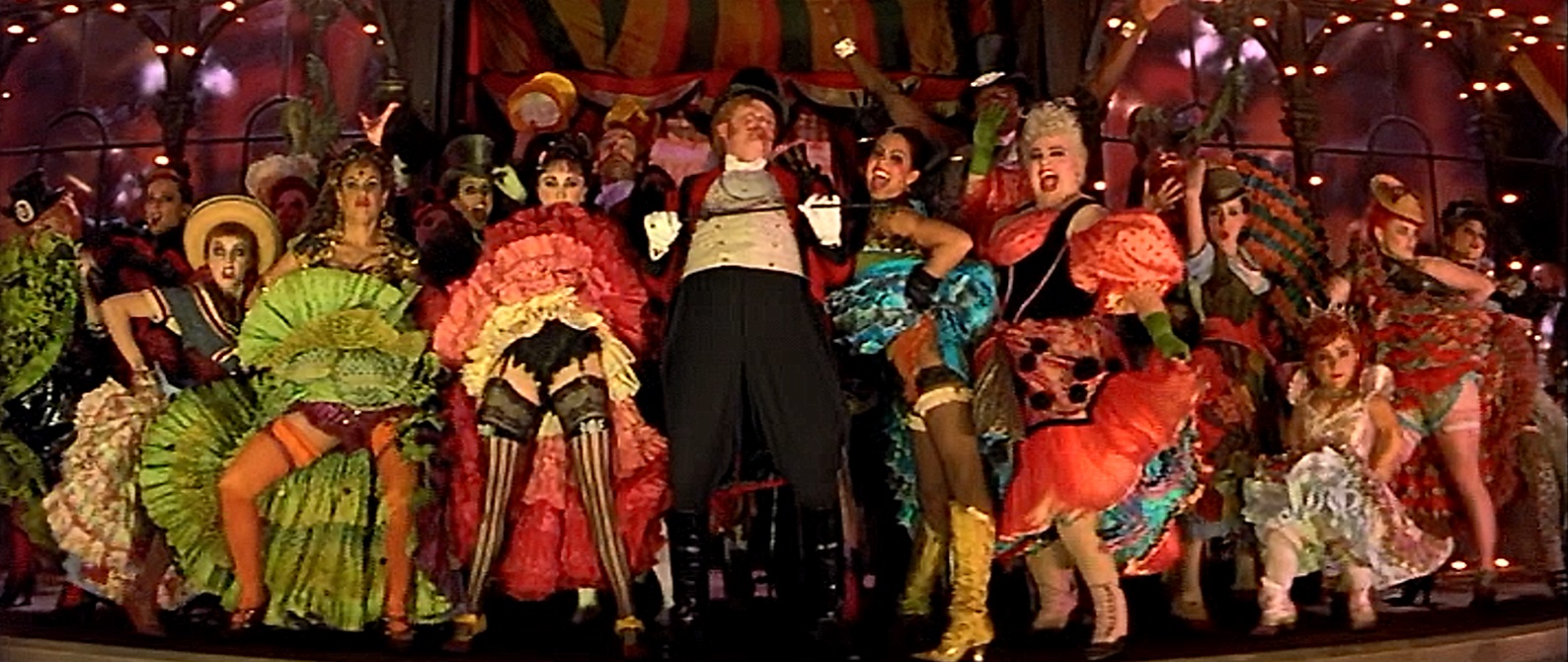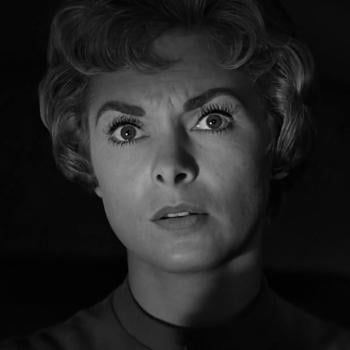
When we talked about Chicago, I noted how that film displays the allure of sin as something empowering and freeing. Likewise, when we talked about A Face in the Crowd, I mentioned how false prophets use rhetoric of liberation to sell their counterfeit gospel. I guess you could say that there’s something similar at work in Baz Lurhman’s 2001 masterpiece, Moulin Rouge. This jukebox musical sells something like manufactured emancipation, but the film also offers a glimpse of what it really means to be free in a world that is subject to loss and misery.
The film follows aspiring poet, Christian, as he descends into the artistic Underworld of France, the Moulin Rouge. There, Christian wins the heart of the crown diamond of the Moulin Rouge, Satine, an exotic courtesan promised to a rich and powerful Duke. As the Moulin Rouge plays host to an exciting new stage production, Christian and Satine put on a performance of their own as they try to conceal their love from the world. All the while, their love is threatened from all angles, from the rage of The Duke, from a silent illness quietly eating away at Satine, and from Christian’s own insecurity.

Christian describes the Moulin Rouge as a “kingdom of nighttime pleasures” which translates roughly to “the whorehouse to end all whorehouses.” And this is where the film’s presentation of sin is interesting. Our first scenes in the Moulin Rouge are kinetic, colorful, bursting with excitement. It seems at first like the film is glamorizing this “eat, drink, and be merry” way of living. But the bitter pill inherent in this lifestyle, which the patrons of the Moulin Rouge readily acknowledge, is that none of this is real. They’re resigned to this non-existence. And the film displays this as well. As Zidler laments late in the film, “We’re creatures of the Underworld. We can’t afford to love.”
It might be worth at least mentioning that even as the film exposes the emptiness of their lifestyle, the film doesn’t frame the cast of the Moulin Rouge as sinful, per se. It doesn’t even really frame them as sinners. Just people looking for love and meaning in a world that feels deprived of either, and doing so in the only way they know how. I wrote about this film in my other film blog, where I track the film’s comments on spectacle and truth in the context of the history of the musical genre. I note how “These performers live in poverty and desperation, and they are just as much in need of a distraction as the audiences they perform for. Yes, their world is all style and no substance, but style is all they have. The closest thing they experience to real happiness is the imitation they put on for the patrons of the cabaret.” (It’s not a bad piece, if I may say so myself …)
But compare the presentation of the more carnal pleasure that the characters chase to the transcendence of Christian and Satine’s love. The former is more exciting, but the latter taps into something more spiritual. Satine remarks to Zidler late in the film, “All my life you’ve told me I was only worth what someone would pay for me. But Christian loves me, and that is worth everything.” This genuine elation offers something that mere flash and indulgence never could. Liberation comes not from indulgence, but from belief. In their love for each other, Christian and Satine find a brief reprieve from their world of disappointment and cynicism.

An element of faith also plays out in their love story. Satine is, after all, a courtesan promised to someone more powerful than Christian, and Christian must believe that Satine’s love for him is true. This is the ultimate test of Christian’s character–he venerates the power of love, but does he truly believe in it himself?
A part of the film’s dynamism is derived from the fact that Christian himself is framed as being somewhat unspotted from the ways of the world–he is completely out of his element when Satine initially tries seducing him. Moreover, his “love conquers all” ethos is at odds with this world of defeatism. As someone who tends to wear his faith on his sleeve, I definitely related to Christian for being made to feel too naive or innocent for this world. One of the reasons why I’ve always resonated with this film is that it shows how believing in love and goodness so sincerely actually takes a mature mind. Cynicism and despondency are of the natural man. Hope comes from somewhere higher.
Christian and Satine’s love story is ultimately a tragic one, the film concludes with Satine dying in Christian’s arms, but in a way they still win. Certain aspects of their ending were predestined–Satine was always going to eventually succumb to her illness–but other parts were the product of a love they chose to share. Yes, Satine dies, but she dies having known love. And where the more sinful pleasures in this world are shown to have a fleeting shelf-life, the love that they share will last forever.













